Related Research Articles

Agnes George de Mille was an American dancer and choreographer.
A ballet company is a type of dance troupe which performs classical ballet, neoclassical ballet, and/or contemporary ballet in the European tradition, plus managerial and support staff. Most major ballet companies employ dancers on a year-round basis, except in the United States, where contracts for part of the year are the norm. A company generally has a home theatre where it stages the majority of its performances, but many companies also tour in their home country or internationally.
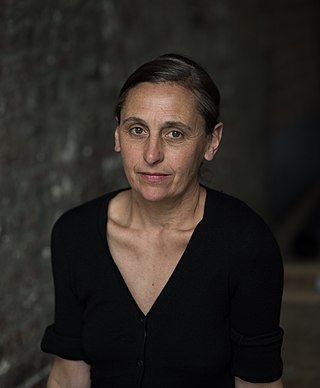
Anne Teresa, Baroness De Keersmaeker is a contemporary dance choreographer. The dance company constructed around her, Rosas, was in residence at La Monnaie in Brussels from 1992 to 2007.

Deborah Colker is a Brazilian writer, theater director, dancer and choreographer. She was an awardee of the Laurence Olivier Award for Outstanding Achievement in Dance. Colker was also the movement director and choreographer of the 2016 Summer Olympics opening ceremony.

Ana Clara Guerra Marques is an Angolan dancer, dance teacher, and choreographer.

Katti Lanner was a Viennese ballet dancer, choreographer, and ballet mistress who found fame in Germany and England, where she staged many productions at the Empire Theatre in London.
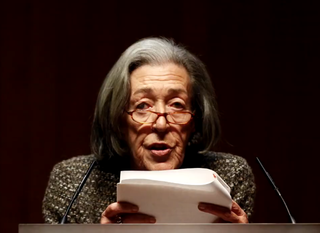
Maria de Fátima de Bivar Velho da Costa was a Portuguese writer who was awarded the Camões Prize in 2002. She took part in the Portuguese Feminist Movement, and became one of the authors of the book Novas Cartas Portugesas, together with Maria Teresa Horta and Maria Isabel Barreno. The authors, known as the "Three Marias," were arrested, jailed and prosecuted under Portuguese censorship laws in 1972, during the last years of the Estado Novo dictatorship. The book and their trial inspired protests in Portugal and attracted international attention from European and American women's liberation groups in the years leading up to the Carnation Revolution.
Tomaz Emídio Leopoldo de Carvalho Cavalcanti de Albuquerque Schiappa Pectra Sousa Ribas was a professor, writer, ethnologist and critic of theatre and dance.
António LagartoGOIH is a Portuguese set and costume designer and artist.

Theatre Camões is a concert hall situated in the civil parish of Parque das Nações, municipality of Lisbon.
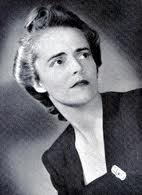
Margarida de Abreu was a Portuguese choreographer. She is identified with the foundation of the classical ballet in Portugal.
Martin Ivo Fredrik Carl Cramér was a Swedish dancer, choreographer, ballet director and director. He was the son of Carl-Rudolf Cramér and the nephew of Harald Cramér and married to Tyyne Talvo Cramér.
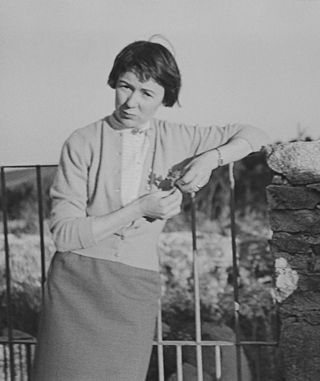
Maria Keil was a Portuguese visual artist. She was born in Silves and died in Lisbon.
Dalal Achcar is a Brazilian ballet master, choreographer, artistic director and producer.
Companhia Nacional de Bailado (CNB), the National Ballet Company of Portugal, was established in Lisbon in 1977 and the Teatro Nacional de São Carlos was its home for the first two decades of its existence. CNB is the only state company in Portugal that has a dance season and is the only company with a permanent group of artists that currently ensure regular seasons at the Teatro Camões as well as touring the country and abroad.
Sonia Destri Lie, often known simply as Sonia Destri, is a Brazilian dancer and choreographer. In 2005, she formed Companhia Urbana de Dança, a hip hop group, which has achieved increasing international recognition. Destri has recruited and trained dancers from Rio's favelas, whatever their social or ethnic backgrounds.
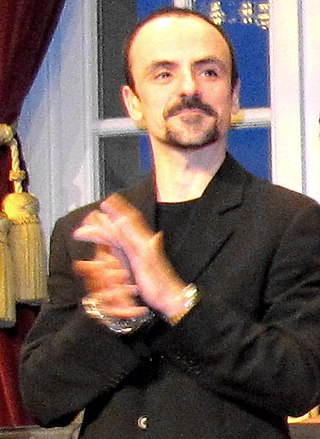
Goyo Montero Morell is a Spanish ballet dancer, a ballet director and a choreographer.

Nuria Mallena is a Brazilian singer, composer and writer.
Tânia Carvalho is a Portuguese artist with a career spanning over 20 years. Best known as a choreographer, she also works in other artistic fields, such as music, drawing and film.
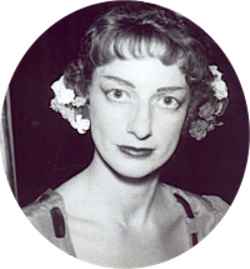
Luna Andermatt (1926—2013) was a pioneer in dance and in ballet training in Portugal and one of the founders of the National Ballet of Portugal.
References
- 1 2 3 4 Horta, Bruno. "Clara Andermatt: "Ser bailarina foi a minha forma de rebeldia"". Observador. Retrieved 28 October 2020.
- 1 2 "Clara Andermatt" (PDF). Teatro Viriato. Retrieved 28 October 2020.
- 1 2 "Direção-Geral das Artes". ASSOCIAÇÃO CULTURAL COMPANHIA CLARA ANDERMATT. Retrieved 28 October 2020.
- ↑ "Magia Pelo Ar: Os 40 anos da Companhia Nacional de Bailado". Máxima. Retrieved 28 October 2020.
- ↑ "Clara Andermatt". IMDb. Retrieved 28 October 2020.